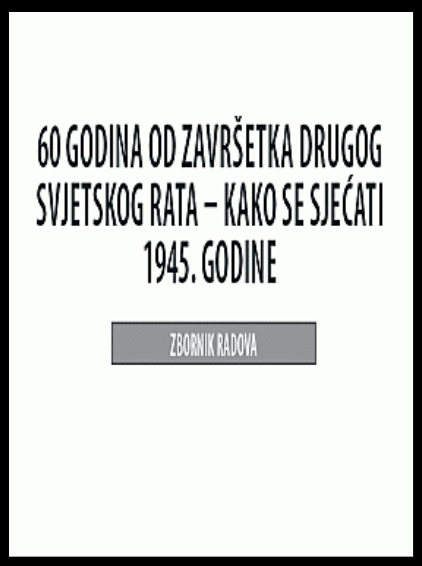Slučaj Pašage Mandžića paradigma težine traganja za povijesnom istinom
The case of Pašag Mandžić: the paradigm of the difficulties in the pursuit for historical truth
Author(s): Tomislav Išek
Subject(s): History, Political history, Recent History (1900 till today), WW II and following years (1940 - 1949), Post-War period (1950 - 1989), History of Communism, Historical revisionism
Published by: Institut za istoriju
Summary/Abstract: Tomislav Išek examines the role of Pašaga Mandžić, one of the most influential leaders of the NOB (National Liberation Struggle) in eastern Bosnia and an important leader in postwar relations, to address the complex relationship between what “really happened“ in Bosnia in 1941 and the beginning of 1942 and subsequent interpretations of what happened. The Communist Part of Yugoslavia attempted to spread a “base“ in eastern Bosnia that included Chetniks, which eventually led to a “crisis within the movement“ that directly affected the fate of Muslims (Bošnjaks). This was one of many negative consequences of Pašag Mandžić’s policies. After introducing the historical facts and interpretations, Išek then turns to the recent war to show how unresolved ideological conflicts and political disagreements from the Second World War had a tragic revival in the aggression on Bosnia and Herzegovina in the 1992-1995 war, in which the same anti-Bosnian elements appeared as the parties danced the “Dance Macabre.” Linking events from 1941-1942 to 1992-1995, Išek uses Mandžić as an example of an individual who fought for his nation only to be criticized by his Party colleagues. It also illustrates the validity of the famous expression, that “those ignorant of history are destined to repeat it.”
Book: 60 godina od završetka Drugog svjetskog rata: kako se sjećati 1945. godine
- Page Range: 195-203
- Page Count: 9
- Publication Year: 2006
- Language: Croatian
- Content File-PDF

